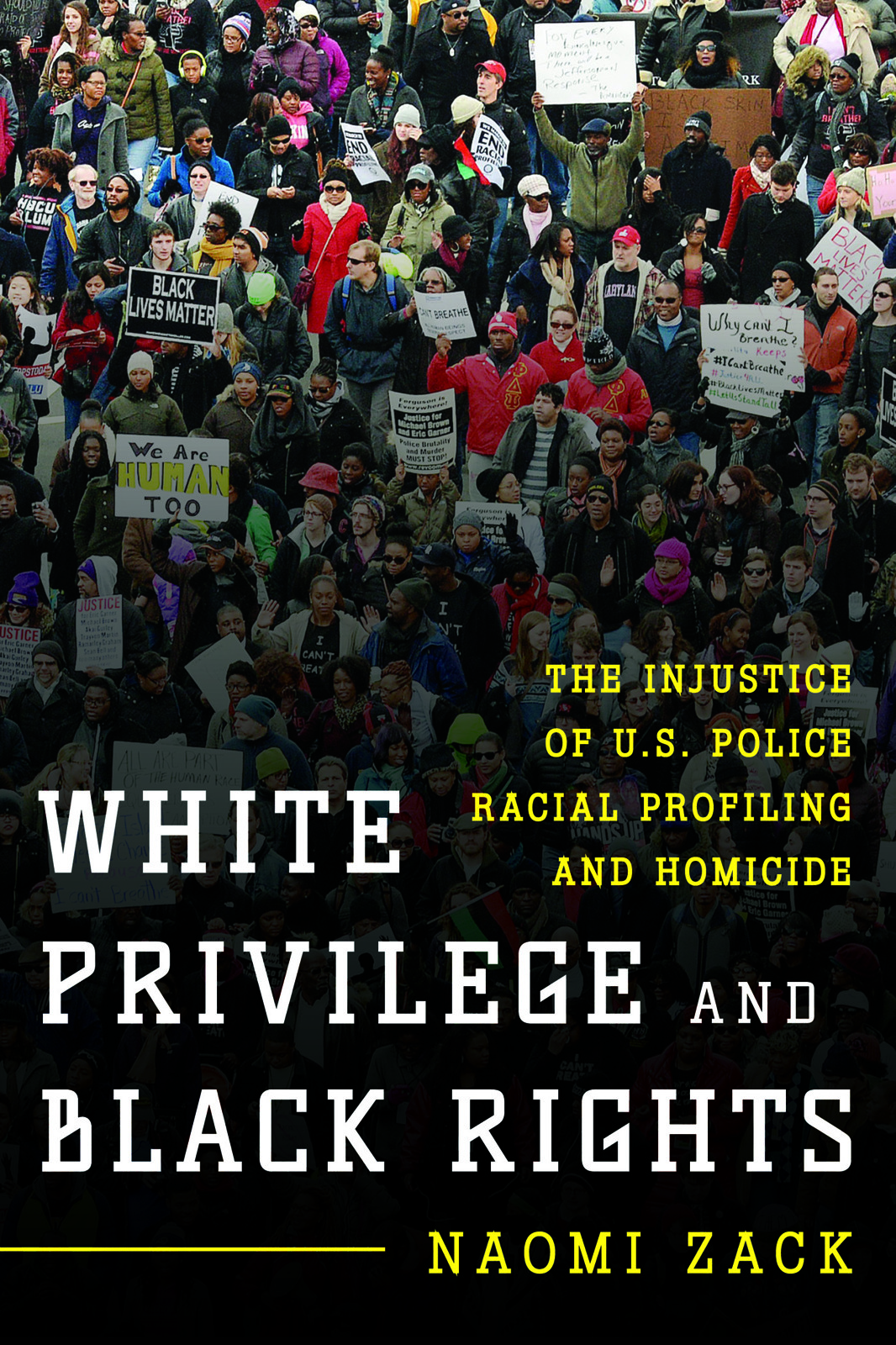White Privilege and Black Rights
White Privilege and Black Rights
The Injustice of U.S. Police Racial Profiling and Homicide
Naomi Zack
ROWMAN & LITTLEFIELD
Lanham Boulder New York London
Published by Rowman & Littlefield
A wholly owned subsidiary of The Rowman & Littlefield Publishing Group, Inc.
4501 Forbes Boulevard, Suite 200, Lanham, Maryland 20706
www.rowman.com
Unit A, Whitacre Mews, 26-34 Stannary Street, London SE11 4AB
Copyright 2015 by Rowman & Littlefield
All rights reserved. No part of this book may be reproduced in any form or by any electronic or mechanical means, including information storage and retrieval systems, without written permission from the publisher, except by a reviewer who may quote passages in a review.
British Library Cataloguing in Publication Information Available
Library of Congress Cataloging-in-Publication Data
Zack, Naomi, 1944
White privilege and black rights : the injustice of U.S. police racial profiling and homicide / Naomi Zack.
pages cm
Includes bibliographical references and index.
ISBN 978-1-4422-5055-0 (cloth : alk. paper) -- ISBN 978-1-4422-5057-4 (pbk. : alk. paper) -- ISBN 978-1-4422-5056-7 (electronic)
1. Racial profiling in law enforcement--United States. 2. African Americans--Civil rights. I. Title.
HV7936.R3Z33 2015
363.2'308900973--dc23
2015001780
 TM The paper used in this publication meets the minimum requirements of American National Standard for Information Sciences Permanence of Paper for Printed Library Materials, ANSI/NISO Z39.48-1992.
TM The paper used in this publication meets the minimum requirements of American National Standard for Information Sciences Permanence of Paper for Printed Library Materials, ANSI/NISO Z39.48-1992.
Printed in the United States of America
In Memoriam:
Oscar Juliuss Grant III (1985-2006),
Trayvon Martin (1995-2012),
Eric Garner (1970-2014),
Michael Brown (1996-2014),
Tamir Rice (2002-2014),
among others.
Whereas it is essential, if man is not to be compelled to have recourse, as a last resort, to rebellion against tyranny and oppression, that human rights should be protected by the rule of law.
-Preamble, Universal Declaration of Human Rights, United Nations, 1948
Preface
Trayvon Martin, Michael Brown, Eric Garner, Tamir Rice, and many others. Hands up, dont shoot, Black Lives Matter, I cant breathe, I cant breathe, I cant breathe... I cant breathe. If you work in philosophy of race and are black or have black ancestryI am multiracialand if your personal sensitivity is greater than that of a plant, then the past two years have been painful and shameful to live through. There seems to be something drastically wrong about a justice system that allows police to kill unarmed young black men with impunity, with American elites of all races, who feel sorry for the misfortunes of our already disadvantaged but cannot do anything to help them, with academic whites who have created a discourse about their privilege, and with all those who are apathetic in the face of black tragedy in our time. I wrote this book quickly and with a sense of urgency, in November and December 2014, while interrupting work on a longer and more theoretical project (Applicative Justice: A Pragmatic Theory for Correcting Injustice) that will eventually provide more comprehensive underpinnings for this work. In other words, I had to stop philosophizing for a minute, to think about reality.
This book focuses on one specific problem: police killings of unarmed young black men that are not legally punished. The writing also had two specific promptings. First I was inspired by responses to my November 5, 2014 NYTimes Stone interview by George Yancy, What White Privilege Really Means. ) focused on this: Not fearing that the police will kill your child for no reason isnt a privilege. Its a right.
My second inspiration was the heated argument between former New York City Mayor Rudolf Giuliani and Georgetown University Professor Michael Eric Dyson on Meet the Press on November 24, 2014. The moderator introduced the claim that white police officers do not racially reflect the population of black communities. Giuliani said it was more important to talk about the fact that 93 percent of blacks who are killed, are killed by other blacks. Dyson said that black-on-black crime was a false equivalency to white police officers shooting blacks, because blacks were punished for killing other blacks and white police officers were not. Giuliani said, White police officers wouldnt be there if you werent killing each other 70 percent of the time. Dyson replied that Giuliani had a white supremacist mindset.
The same 93 percent figure was trotted out in comments (mostly from Internet trolls) about what I said in the NYTimes interview. It is completely irrelevant to the discussion of racial profiling and the impunity enjoyed by white police officers who kill blacks in stop and frisks or while attempting to perform stop and frisks.
Moreover, to bring up the 93 percent statistic when the subject is white police officer homicide following racial profiling is a distraction back to the mode of discourse preferred by those who insist that American society is not racist against blacks. That mode of discourse seeks to find ways to blame victims and hold them responsible for their own misfortune and disadvantage. The reasoning that could be implicit in Giulianis remarks is that if blacks can be blamed for most of the death rate of young black males, then homicides against blacks committed by white police officers are less blameworthy, by comparison. However, blame is a moral assessment that is not a matter of numbers alone. American citizens have constitutional rights that are at stake in these cases of police homicide. The Fourth Amendment is supposed to protect against arbitrary searches and seizures. The Fourteenth Amendment is supposed to guarantee equal protection under the law and in actions of government officials. Police racial profiling violates both amendments, first by arbitrary stops and searches, and second by disproportionate use of those methods against blacks. The police have a special duty, stated in their oaths, to uphold the Constitution. That is the issue missed by Giuliani and many others.
Contemporary academic discussion of social justice has now shifted to the discourse of white privilege. I think this is a mistake, insofar as privileges are extra perks and more is at stake in recent police killings of unarmed black men than denial of perks. I hope we have not sunk so low in American society that plain, simple, justice according to the Constitution must be regarded as a perk. Police killings that rest in impunity when grand juries do not indict and trial juries do not convict, violate ultimate, nonnegotiable rights.
About two thirds through the writing of this manuscript, on December 17, 2014, I attended a very timely event at the University of Oregon. Yvette M. Alex-Assensoh, Vice President for Equity and Inclusion, organized I Cant Breathe: A Conversation Starter about Racism, Justice, and Love. A diverse group of administrators, staff, faculty, students, community representatives, faith-based representatives, campus police, and city police assembled to discuss the effects on their lives of the recent killings that have not been followed by jury convictions or grand jury indictments, and how a university community might respond.
We sat at round tables of six or eight people, beginning with one-on-one discussions, expanding to full table discussions, and then summarizing to the rest of room. At my table, a young woman of color commented on responses to recent police killings on social media. She reflected that those who were nonwhite among her friends and relations showed engaged responses on their Facebook pages, while her white friends and relations seemed unaware of these events and posted nothing about them. A young white woman at the table talked about the silence on our campus about these incidents. African Americans are under-represented at all levels at the University of Oregon, perhaps reflecting the racial demographics of Oregon itself, which in 2013 had only 2 percent blacks in its population, compared to 13.2 percent for the United States overall. )
Next page
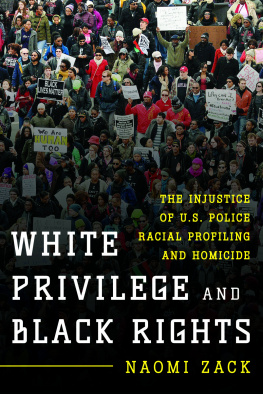
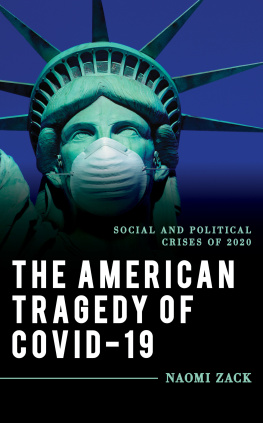


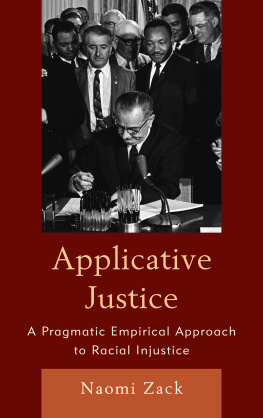
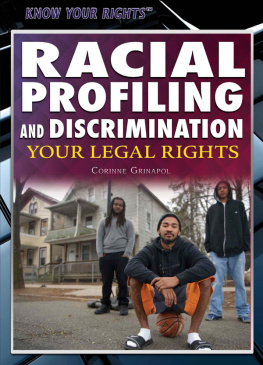
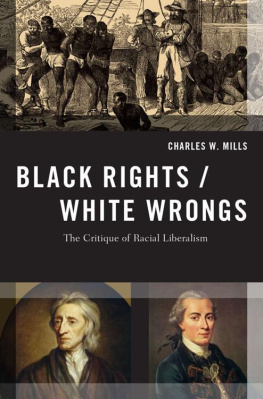
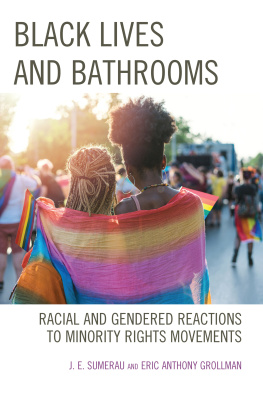
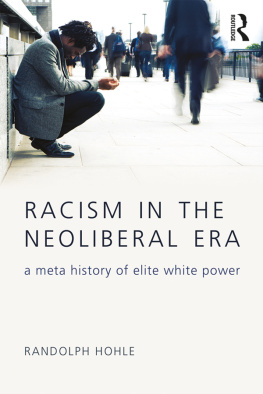
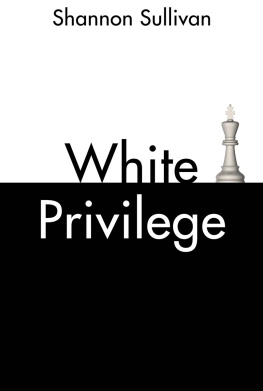

 TM The paper used in this publication meets the minimum requirements of American National Standard for Information Sciences Permanence of Paper for Printed Library Materials, ANSI/NISO Z39.48-1992.
TM The paper used in this publication meets the minimum requirements of American National Standard for Information Sciences Permanence of Paper for Printed Library Materials, ANSI/NISO Z39.48-1992.